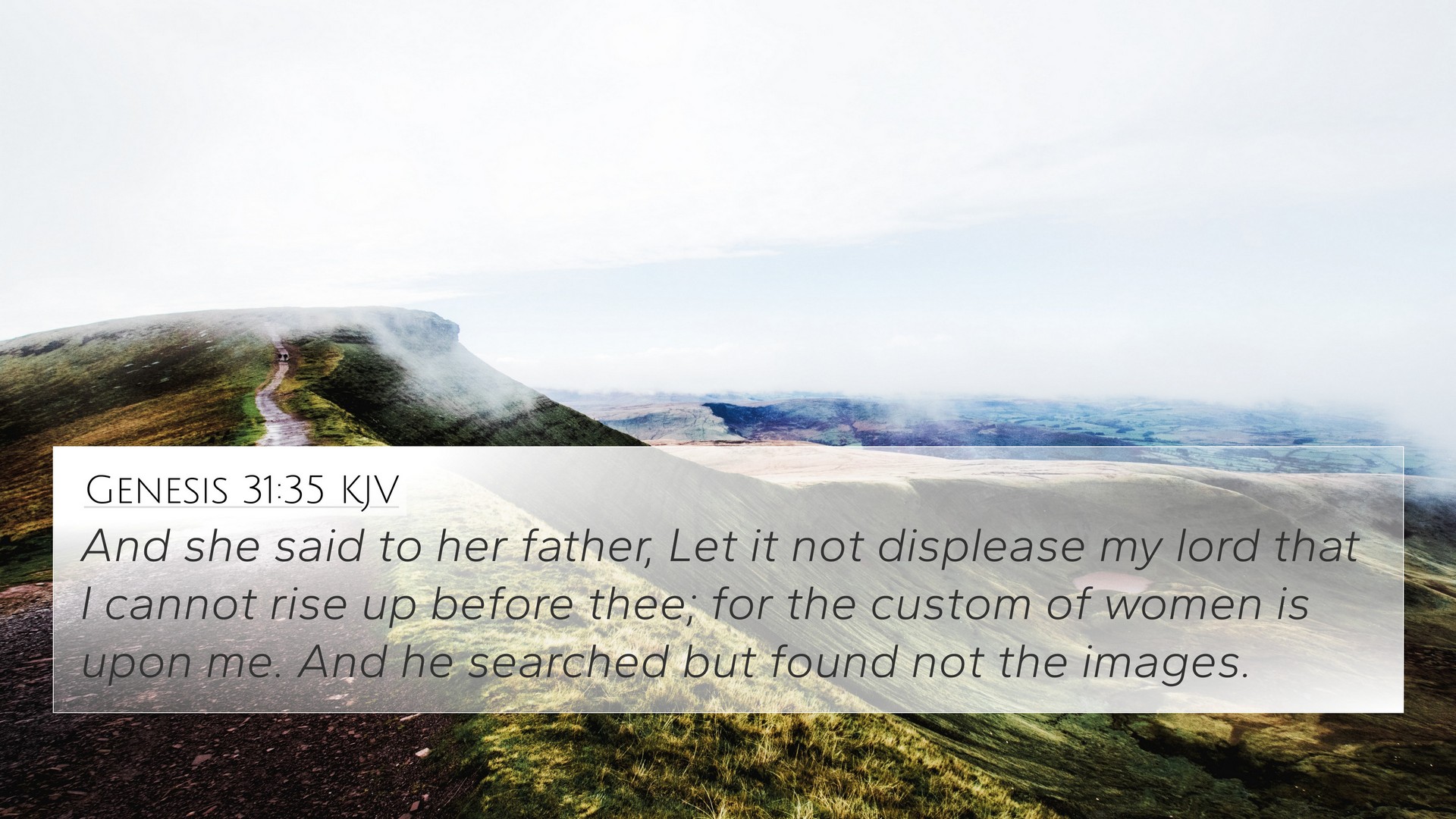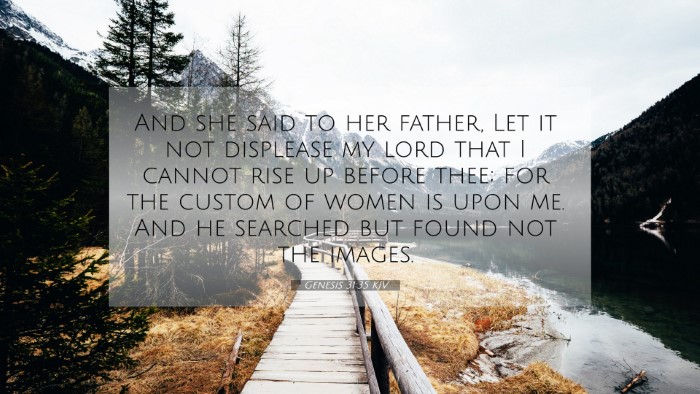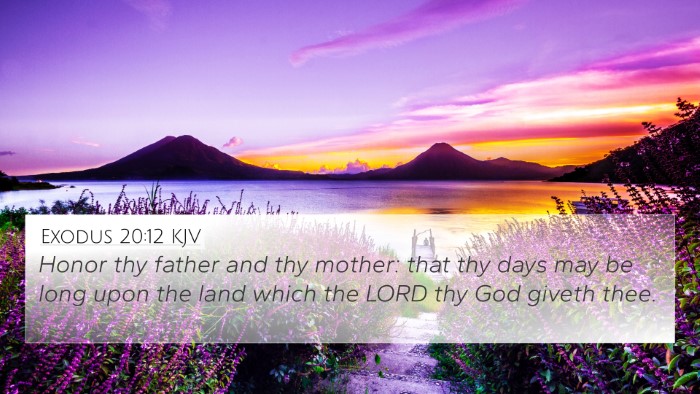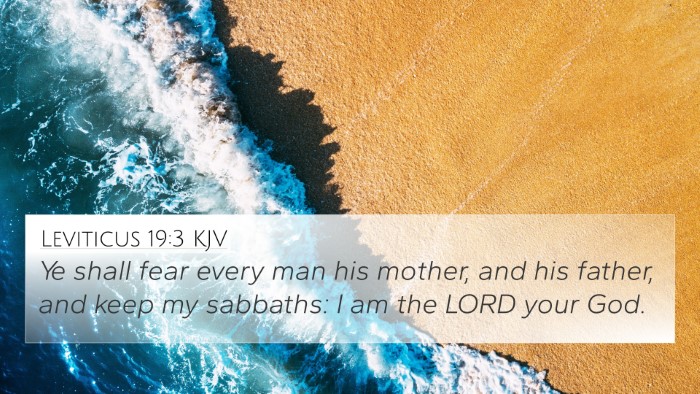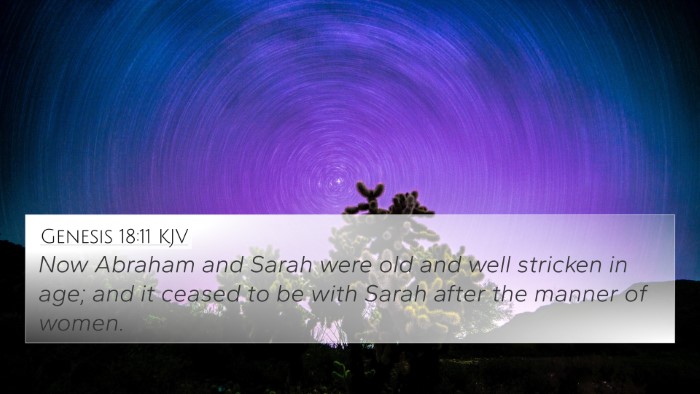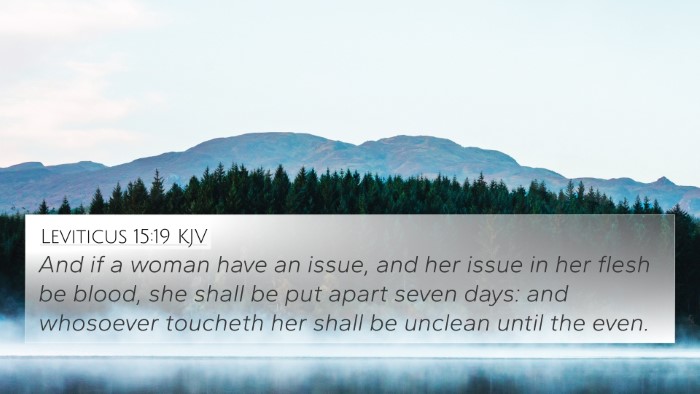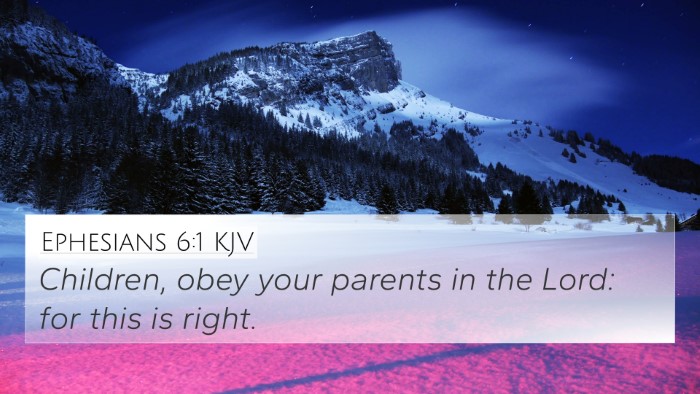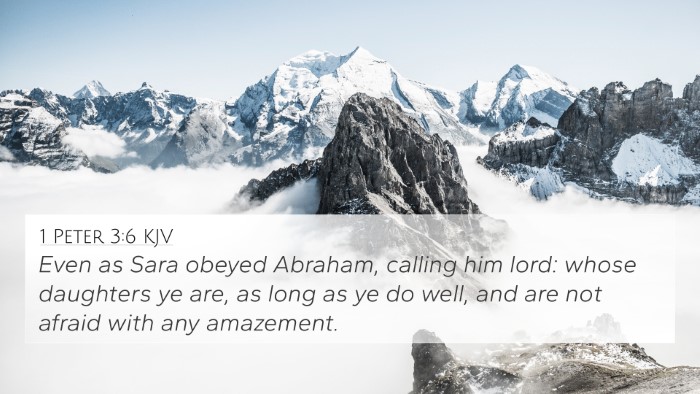Understanding Genesis 31:35
Genesis 31:35 reads: “And she said to her father, 'Let there be no anger in the sight of my lord, that I cannot rise up before you; for the manner of women is with me.' And he searched but did not find the household idols.”
This verse is part of the narrative involving Rachel's deception of her father, Laban, as she stole his household gods or idols when Jacob and his family fled Laban's home. The verse signifies not only a personal struggle but also highlights themes of loyalty, family dynamics, and the complexities of faith in a polytheistic context.
Historical Context
The context of this verse is rooted in Jacob's departure from Laban, reflecting a tense family relationship. Jacob had worked for Laban for many years, and his decision to leave with his wives and children illustrates the desire for autonomy and the desire to return to his homeland. Rachel's actions—stealing her father’s idols while also asserting her rights—show the intertwining of familial loyalty and personal conviction.
Thematic Insights from Commentaries
-
Matthew Henry suggests that Rachel’s preference to lie about her condition illustrates the deep-seated fear of men that plagued women of that time. She employs cleverness to protect herself in the patriarchal structure while highlighting her desperation to affirm her status.
-
Albert Barnes interprets Rachel's act of stealing as indicative of her desire to maintain a connection to her heritage while questioning the efficacy of her father’s idols. This act speaks to the broader biblical theme of faithfulness to God versus reliance on tangible objects or idols.
-
Adam Clarke emphasizes the significance of Rachel's statement about being “the manner of women.” He elucidates the reference as both a biological and cultural aspect that highlights her condition and serves as a veiled excuse for her not being able to rise, reflecting the complexities women faced during childbirth in Biblical times.
Cross References and Connections
Genesis 31:35 can be linked to various other verses across the Bible, highlighting significant thematic connections:
- Genesis 31:19 - This verse discusses Rachel's act of stealing her father's idols, providing the immediate context for her actions.
- Genesis 30:1-2 - Here, Rachel's struggle with infertility is depicted, adding depth to her motivations in 31:35.
- Judges 18:18 - This passage references household idols, connecting Rachel and Laban's practices with idolatry in future Israelite contexts.
- 1 Kings 15:13 - This verse discusses the removal of idols, indicative of the ongoing struggle against idolatry among God's people.
- Jeremiah 10:14 - A critique of idol worship that resonates with Rachel's attachment to Laban's gods illustrates the pervasive challenge of idolatry.
- Exodus 20:3 - The commandment against having other gods before the Lord contrasts with Rachel's actions.
- Romans 1:23 - A New Testament reflection on the futility of worshiping created things over the Creator, tying back to Rachel's idolatry.
- Philippians 3:18-19 - Paul warns against those who set their minds on earthly things, echoing Rachel’s choice to cling to her father’s household deities.
- Matthew 6:19-21 - Jesus teaches about earthly treasures versus heavenly treasures, further deconstructing the allure of material idols.
- Galatians 4:8-9 - Paul’s admonition regarding former enslavement to idols when one comes to know God speaks to the heart of Rachel's dilemma.
Understanding Through Cross-Referencing
By employing a Bible cross-reference guide, we can draw deeper insights into Genesis 31:35. Each related verse serves as a tool for Bible cross-referencing, allowing us to see parallels and contrasts across the scriptures. This method reveals the Biblical principles at play and helps in understanding the narrative contextually, thematically, and spiritually.
Concluding Thoughts
Genesis 31:35 is not just a narrative about a family dynamic; it embodies the struggle of faith, identity, and the significant theological theme of idolatry versus allegiance to God. Understanding this verse through the lens of Biblical cross-referencing opens a dialogue between the testaments, allowing for a richer interpretation of faith as it relates to personal and communal relationships with God. It demonstrates the ongoing conversation within scripture about worship, idolatry, and personal integrity, relevant across historical and cultural boundaries.
